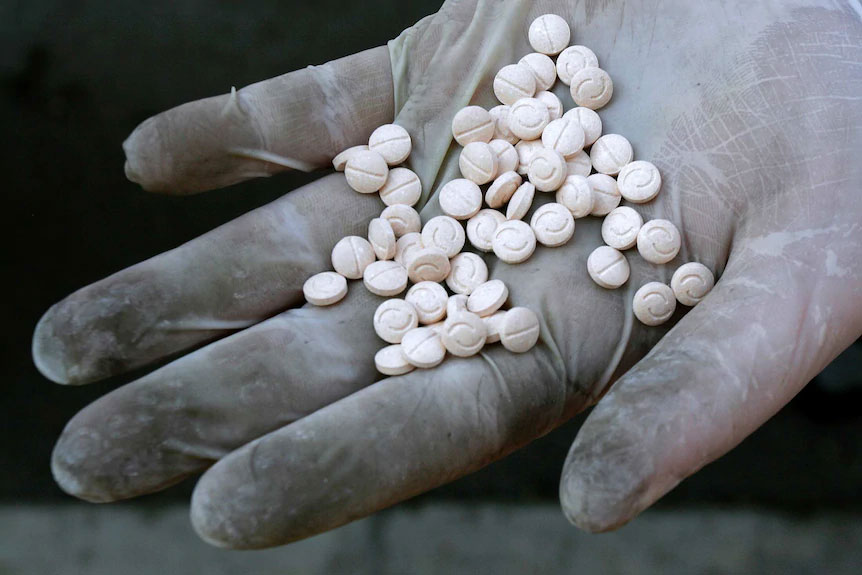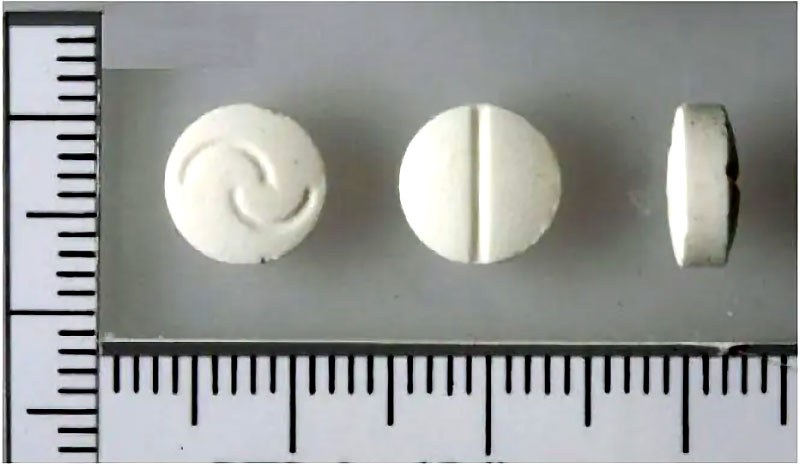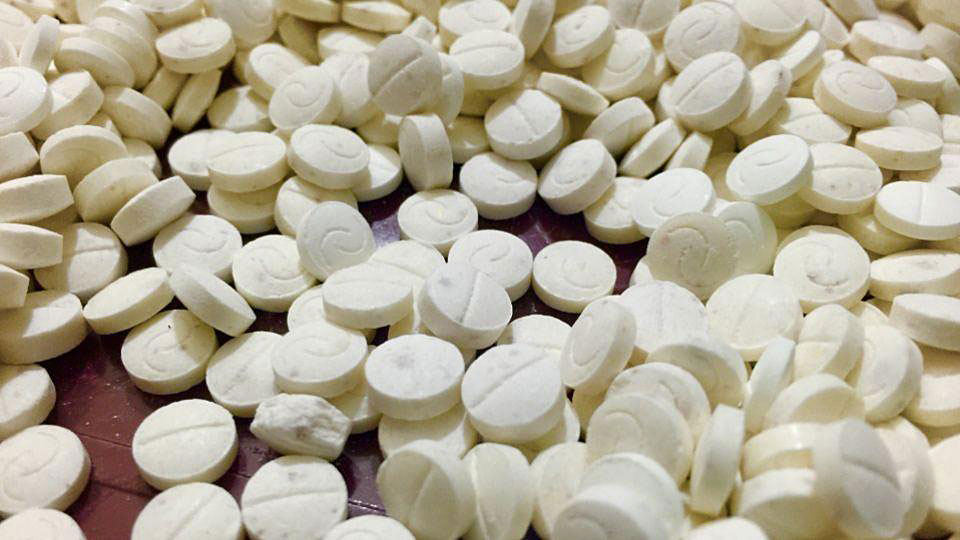Fenethylline (BAN, USAN) is a codrug of amphetamine and theophylline and a prodrug to both. […] The drug was marketed for use as a psychostimulant under the brand names Captagon, Biocapton, and Fitton.
Fenethylline was first synthesized by the German Degussa AG in 1961 and used for around 25 years as a milder alternative to amphetamine and related compounds.[3] Although there are no FDA-approved indications for fenethylline, it was used in the treatment of “hyperkinetic children” (what would now be referred to as attention deficit hyperactivity disorder) and, less commonly, for narcolepsy and depression. […]
Fenethylline was considered to have fewer side effects and less potential for abuse than amphetamine. Nevertheless, fenethylline was listed in 1981 as a schedule I controlled substance in the US, and it became illegal in most countries in 1986 after being listed by the World Health Organization for international scheduling under the Convention on Psychotropic Substances, even though the actual incidence of fenethylline abuse was quite low. […]
“Fenethylline.” Wikipedia, Wikimedia Foundation, 4 June 2022, en.wikipedia.org/wiki/Fenethylline.
Resources:
- Captagon on Wikipedia
- Captagon on Drugs.com
- To see what happens to the brain on drugs play to the game “Mouse Party” | Genetic Science Learning Center. “Mouse Party.” Learn.Genetics. August 30, 2013. Accessed December 25, 2021. https://learn.genetics.utah.edu/content/addiction/mouse/.



Leave a Reply